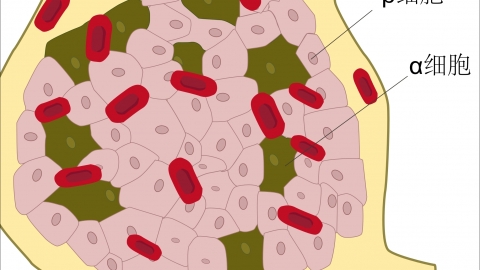How to treat pancreatic beta cell dysfunction
Generally, pancreatic beta cell dysfunction may be caused by aging, unhealthy lifestyle habits, obesity, type 2 diabetes, pancreatitis, and other factors. It is recommended to seek timely medical consultation, identify the underlying cause, and then improve the condition under a doctor's guidance through general treatments or medication. Detailed explanations are as follows:

1. Aging: With increasing age, the number and activity of pancreatic beta cells decrease, leading to insufficient insulin secretion. In daily life, it is important to control diet, reduce intake of high-sugar and high-fat foods, and consume more vegetables and whole grains. Engage in moderate exercise 3-5 times weekly, each session lasting about 30 minutes, to help maintain pancreatic beta cell activity.
2. Unhealthy lifestyle habits: Long-term熬夜 (staying up late), overeating, and lack of physical activity can increase the burden on pancreatic beta cells, causing functional impairment. Adjust your作息 (sleep schedule) immediately, ensuring 7-8 hours of sleep daily; maintain regular meals, avoid overeating, and control total caloric intake; quit smoking, limit alcohol consumption, reduce stimulation to pancreatic beta cells, and gradually restore cellular function.
3. Obesity: Accumulation of body fat can cause insulin resistance, chronically overstimulating pancreatic beta cells to secrete excessive insulin, eventually leading to functional decline. Weight control through low-calorie diets and exercise is essential. Follow medical advice to use medications such as metformin hydrochloride tablets, liraglutide injection, and orlistat capsules to improve insulin resistance and reduce the burden on pancreatic beta cells.
4. Type 2 diabetes: Prolonged hyperglycemia damages pancreatic beta cells, resulting in progressive functional decline, characterized by difficulty in controlling blood glucose levels. Patients must strictly manage diet and exercise while following medical advice to use medications such as glimepiride tablets, repaglinide tablets, and insulin injections to supplement or promote insulin secretion, protecting residual beta cell function.
5. Pancreatitis: Inflammation of the pancreas directly damages pancreatic beta cells, causing a sharp decline in insulin secretion, potentially leading to diabetes. During acute episodes, fasting and water restriction are required. Follow medical advice to use medications such as piperacillin sodium tazobactam sodium for injection, ceftriaxone sodium for injection, and octreotide injection to control inflammation and protect the pancreas.
In daily life, maintain emotional stability and avoid negative emotions such as anxiety and stress that may affect blood glucose levels; undergo regular pancreatic function tests to adjust treatment plans timely; avoid taking medications that may damage the pancreas, reducing the risk of further pancreatic beta cell damage.




